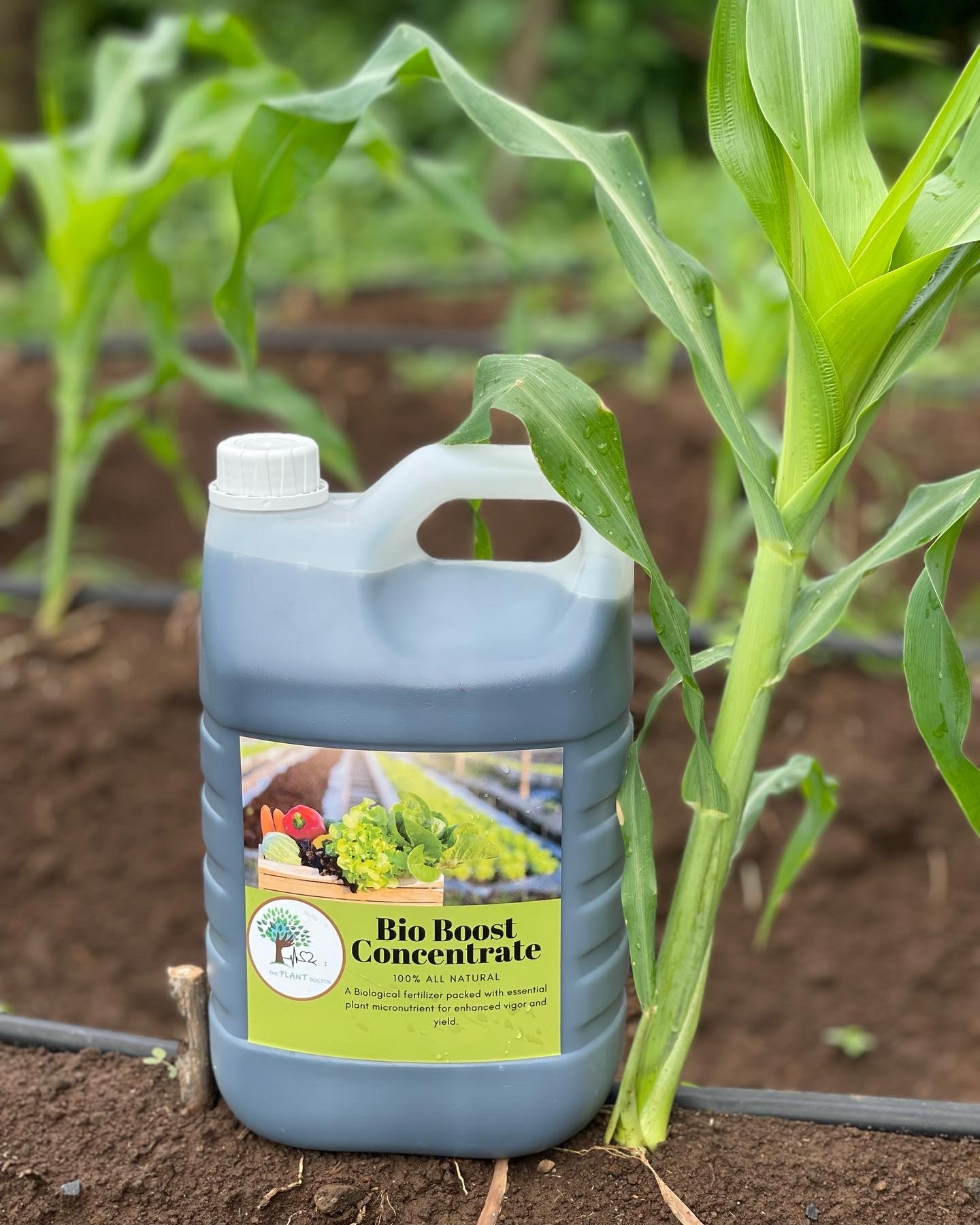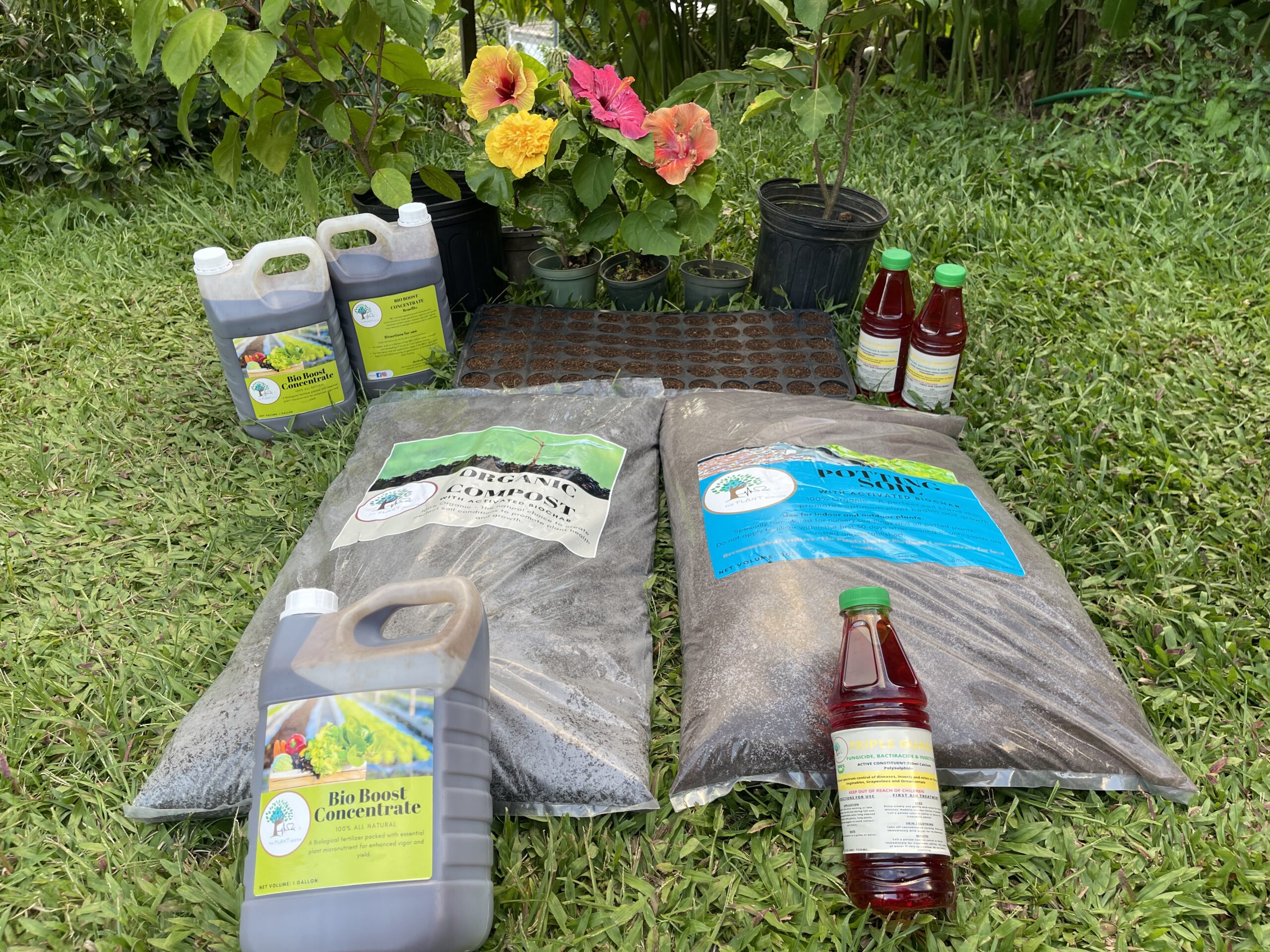
16 Aug Feeding The Soil To Feed A Region: The Plant Doctor, St. Vincent and the Grenadines
In the quest to shift crop farmers’ focus from petrochemical-based fertilisers and pesticides to natural and organic alternatives, one business is leading the charge. Meet The Plant Doctor, a St. Vincent and the Grenadines-based venture, founded by plant pathologist Gordon Shallow. It is manufacturing organic pesticide alternatives and gradually winning over farmers with products that feed both the soil and the crops for increased food and nutrition security.
The Birth of the Plant Doctor
Back in 2015 when Shallow was the curator of the St. Vincent and the Grenadines Botanical Gardens, he started The Plant Doctor as a consultancy promoting composting and using organic fertiliser alternatives. However, when the COVID-19 pandemic disrupted imports causing fertiliser shortages and endangering local food production, he decided to address the problem directly by manufacturing and marketing homegrown products.
An Affordable Product Line That Nurtures
The Plant Doctor began with compost made from egg shells, food peels, grass, leaves and other organic materials. Later, a fertiliser using fish waste for its richness in nitrogen, phosphorus, potassium and other nutrients needed for plant growth and soil health was introduced as was a potting soil. As pest control became another concern, a 3-in-1 bactericide, pesticide and fungicide, was also added to the product line.
By sourcing organic waste from local agro processors, like plantain chip manufacturers, The Plant Doctor not only encourages sustainable farming practices but contributes to a reduction in landfill pile-up as well.
In addition, affordability is an essential feature of the products. Shallow says farmers can expect to get more value for their money because The Plant Doctor’s products have longer lasting positive effects when compared to synthetic products.

Why natural and organic?
To demonstrate the point, he explains the natural fertilisation process that causes plant life in forested, semi-forested or wild areas to thrive. Materials like fallen leaves and other organic debris contain useful microbes that break down these materials releasing nutrients and nourishing the soil. In turn, this nourished soil promotes healthy plant growth.
In contrast, synthetic petro-chemical-based fertilisers commonly used by many Vincentian farmers are absorbed directly by the crops. Although they provide nutrients for the crop, they do not replenish the soil. Over time, this leads to nutrient depletion, particularly evident in former banana plantations where synthetic fertilisers and pesticides were relied upon for decades.
Soil health for food security and food sovereignty
Mr. Shallow firmly believes that prioritising soil health is key to addressing food security and food sovereignty challenges. By empowering local growers to adopt ecologically sound and sustainable practices, communities can produce culturally preferred, nutritious food.
The importance of this approach was underscored by the country’s Minister of Agriculture in 2021, when he called for increased consumption of locally produced food to reduce the high food import bill. In support of this vision, St. Vincent and the Grenadines committed to reducing food imports by 25% by the year 2025 in support of a CARICOM-wide initiative.
Vision
Mr. Shallow envisions more than just local impact for The Plant Doctor, according to him, “We’re daring to change food security and food sovereignty not just in St. Vincent and the Grenadines but in the region.” He explained, “I do not just simply see [us] exporting from St. Vincent but establishing a particular aspect of our manufacturing in the different islands as well.” He also foresees the business expanding beyond the region.
The business continues to overcome challenges. Initially, farmers were slow to accept and adopt the products but as success stories of early adopters are shared, others are coming on board. Shallow notes that sourcing suitable packaging especially in the region has been an ongoing difficulty but there has been some relief in financing, an area that was inhibiting production.
Recognition and Support
Shallow participated in the 2022 cohort of the Eastern Caribbean Greenpreneurs Incubator Programme and earned awards for the Best Video Pitch and excellence in the programme in addition to US$10,000 in seed grant funding for The Plant Doctor. He says the money will help with equipment purchases, staffing and packaging.
The business continues to overcome challenges. Initially, farmers were slow to accept and adopt the products but as success stories of early adopters are shared, others are coming on board. Shallow notes that sourcing suitable packaging especially in the region has been an ongoing difficulty but there has been some relief in financing, an area that was inhibiting production.
Looking ahead
With its science-backed, nature-centric approach to nourishing soil, The Plant Doctor is paving the way for crop farmers in St. Vincent and the Grenadines to increase yields sustainably and chart a more secure and self-sufficient future. As the business overcomes hurdles, the vision of regional impact becomes increasingly attainable.

